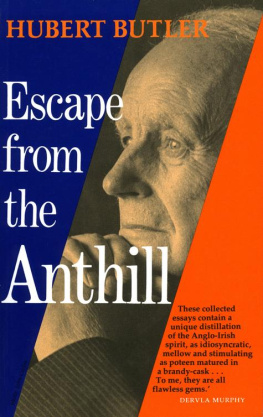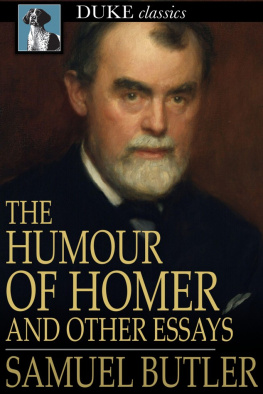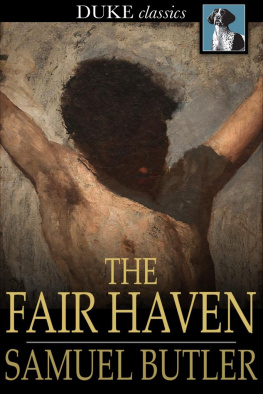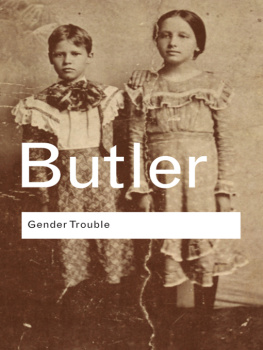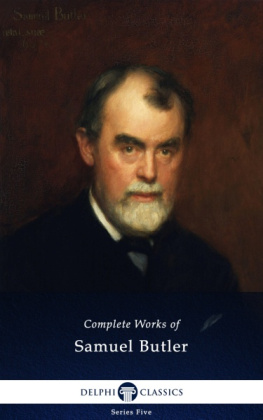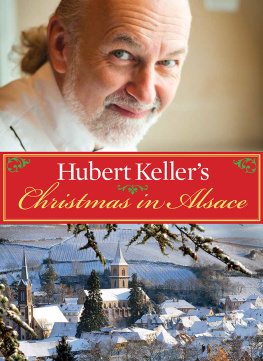FOR PEGGY
CONTENTS
Thanks and acknowledgments are due to the editors and publishers of the following books, periodicals and newspapers in which various parts of this volume first appeared:
Henry and Frances: The Dublin Magazine, April 1950.
New Geneva in Waterford: Journal of the Royal Society of Antiquaries of Ireland, December 1947.
The Bishop: The Twentieth Century, February 1960.
The Country House After the Union: A Radio ireann Thomas Davis Lecture 1957, published in R. B. McDowell (ed.), Social Life in Ireland 1800-45 (Cork 1957) under title The Country House The Life of the Gentry.
An Irish Ecumenical Movement: The Irish Times, 18 December 1964.
The Eggman and the Fairies: The Twentieth Century, July 1960.
Anglo-Irish Twilight: Journal of the Butler Society, 1978/9, under title Anglo-Irish Twilight, the last Ormonde War.
Beside the Nore: Ireland of the Welcomes, May-June 1970, under title Nore and Barrow.
Divided Loyalties: An Cosantoir, The Irish Army Journal, August 1979.
The Invader Wore Slippers: The Bell, November 1945.
Portrait of a Minority: The Bell, June 1954.
A House of God: The Twentieth Century, May 1955.
Boycott Village: The Twentieth Century, January 1958.
The Bell: An Anglo-Irish View: Irish University Review, Spring 1976.
Envoy and Mr Kavanagh: The Bell, September 1951.
Graham Greene and Stephen Spender: The Sense of Evil and the Sense of Guilt: The Bell, November and December 1951.
Two Critics: E. M. Forster and Edmund Wilson: The Bell, March 1952.
Three Friends: Eoin OMahony, Owen Sheehy-Skeffington and Elizabeth Bowen: The Irish Times, 21 February 1970; memorial addresses 11 June 1971 (Examination Hall, TCD), 18 October 1979 (Farahy Church, Co. Cork).
A Visit to Hesse and Some Thoughts About Princes: The Irish Times, 20 September 1968, and Journal of the Butler Society, 1978/9.
Without the Bible in Spain: The Twentieth Century, December 1958.
Return to Hellas: The Twentieth Century, January 1961.
Lament for Archaeology: The Irish Times, 31 July1 August 1979.
Mr Pfeffer of Sarajevo: Nonplus (Dublin), Winter 1960.
The Last Izmirenje: The Irish Press, 28 February 1947.
The Sub-Prefect Should Have Held His Tongue: The Twentieth Century, June 1956.
The Artukovitch File: Section I appeared in New Blackfriars, February 1971, under title What Became of Artukovitch? Reflections on a Croatian Crusade.
Peters Window: Originally published in Robet Greacen (ed.), Irish Harvest (New Frontiers Press 1946) under title The Teaching Brigade; now revised and expanded.
Hubert Butler is old enough if only just to be my father. For this reason I regarded him, when I first met him over forty years ago, with the awe which young aspirant writers reserve for those who were of the time just past: in this case the time of AE, Yeats and Sir Horace Plunkett: the time I had just missed. The very first words of his that I ever read were in The Bell for July 1941. In an article called The Barriers he said, A nation cannot be created negatively by elimination or strategic retreats into the past. It is a strange time, he said, to maintain the theory that a distinctive culture cannot exist without cultural intercourse. At that time, when our isolation, physical and moral, was intensified by the war, here was a voice intent, in AEs words, Against the sceptred myth to hold The golden heresy of truth.
Upholding the heresy of truth has been a principal part of his business ever since, sometimes at considerable personal cost, as readers of these essays will learn, if they do not already know it. Some of them were written during, and others refer back to, the ice-age of the forties and fifties when Ireland seemed gripped by paralysis and when only the voices to whom The Bell under Sean OFaolain and Peadar ODonnell gave a platform spoke for freedom.
Courage, common sense and elegance: and the rarest of these is elegance. Again and again I have been struck, in reading these essays, by the felicitous phrase, the apt metaphor, and the vivid image, as though this prose had been written with the care which poets give to the writing of their verse. And why not? It is, in the end, for his style that an author is read; and what is the use of writing to persuade if you cannot charm your reader and disarm him?
Hubert Butler is a deceptive writer. Just as we find ourselves sagely nodding agreement with one of his strictures, the knife is deftly slipped between our own ribs and we are transfixed upon his point. The merciless description of Mrs A. in Portrait of a Minority is no more than she deserves. But when Hubert Butler attributes his independence of mind to the possession of a few fields beside the River Nore, he is not doing himself justice. Privilege, he says, develops the faculties and sharpens the sensibilities. No doubt it is morally beneficial to be neither too rich nor too poor, and there is a mystique about the possession of land which sometimes but only sometimes serves to stiffen independence. But his evident admiration for the minor country gentry is for the most part misplaced, because, as Swift pointed out, all classes of persons are contemptible and redeemed only by the virtues of individuals. There are even just men found among academics, bureaucrats and other classes of the damned.
There is another notable category of achievers. It was long ago observed that rectories and manses produced able offspring out of all proportion to their numbers. The reason is not far to seek. In the houses of the clergy there were books, the things of the mind were held in esteem, their children enjoyed educational advantages, and they were raised to some degree above the prevailing economic level.
The one great truth which seems to underlie almost everything in these essays of Hubert Butler is this: that the magnitude of a moral issue, like that of an angle in geometry, is independent of its reach or scope. This old philosophical conundrum (Is the suffering of ten people ten times as great as the suffering of one?) is never far from his attention. We grieve, he writes, for distant events and people with sympathy as thin and ephemeral as the newspapers in which we read about them. But he has no difficulty in showing how easily moral issues are fudged even when they concern our relations with our next-door-neighbours (Boycott Village and indeed passim).
A wise historian has written, Throughout the ages there have always been hopeful politicians who believe that if only the peoples of the world could come together they would love and understand each other. It is a tragic delusion. So long as X and Y had little to do with each other their relations were friendly. X and Y, in that particular equation (from Sir Steven Runciman), were the Byzantine Empire and the Latin West. That very quarrel, in its modern form, is still with us, and forms much of the subject of the essays in the third section.
Hubert Butler is better placed than most people, by reason of his Balkan and Russian experiences, to judge whether travel really broadens the mind or not. It depends on what kind of a mind you have to begin with. What it has done for him is to illuminate the scene at home and help him to understand it better. He is telling no more than the truth when he says in his introduction that whatever their ostensible subjects, these essays are in fact about his relationship to Ireland.
A writer without a point of view is like distilled water: pure no doubt but hopelessly insipid. There is no danger of this with Hubert Butler. His viewpoint, that of a protestant republican, is one which I share (and there are many more of us than is commonly supposed). Some of his other prejudices are less widely shared. They can be crudely overstated in some such form as this: amateur good, professional bad; rural Ireland good, Dublin bad; parish pumps good, metropolitan water boards (and all other metropolitan boards) bad; and so on to taste. Bureaucrats, academics and experts are easy targets, and we have not all the good fortune if it is good fortune to be born country gentlemen. Some of his dislikes are, just at present, rather fashionable. But no man I know is less subject to fashion, intellectual or other. He is a living example of Ibsens principle that great majorities, whether silent or vocal, are always wrong. Justum et tenacem propositi virum, as Horace has it: but always flexibly, and always with humour. (Incidentally, though I disliked the English public school to which I was sent as much as Hubert disliked his, I do not agree with him that compulsory classics fester like an abscess for the rest of our lives. My classical education is the ruins of an unfinished building: if I poke about in the long grass I find things worth digging up, and so, evidently, does he.)

